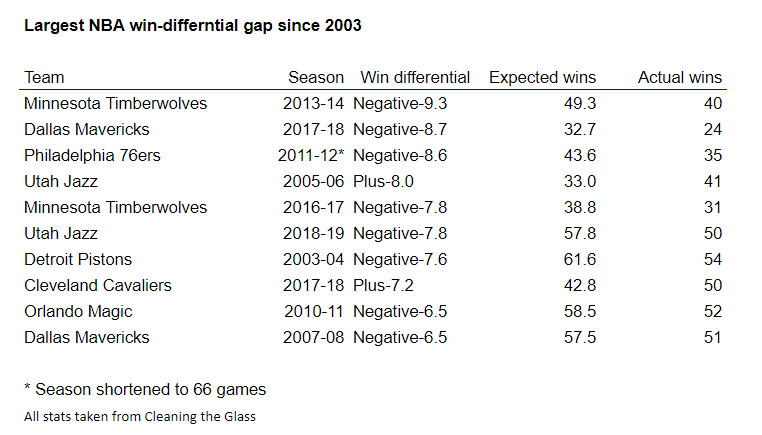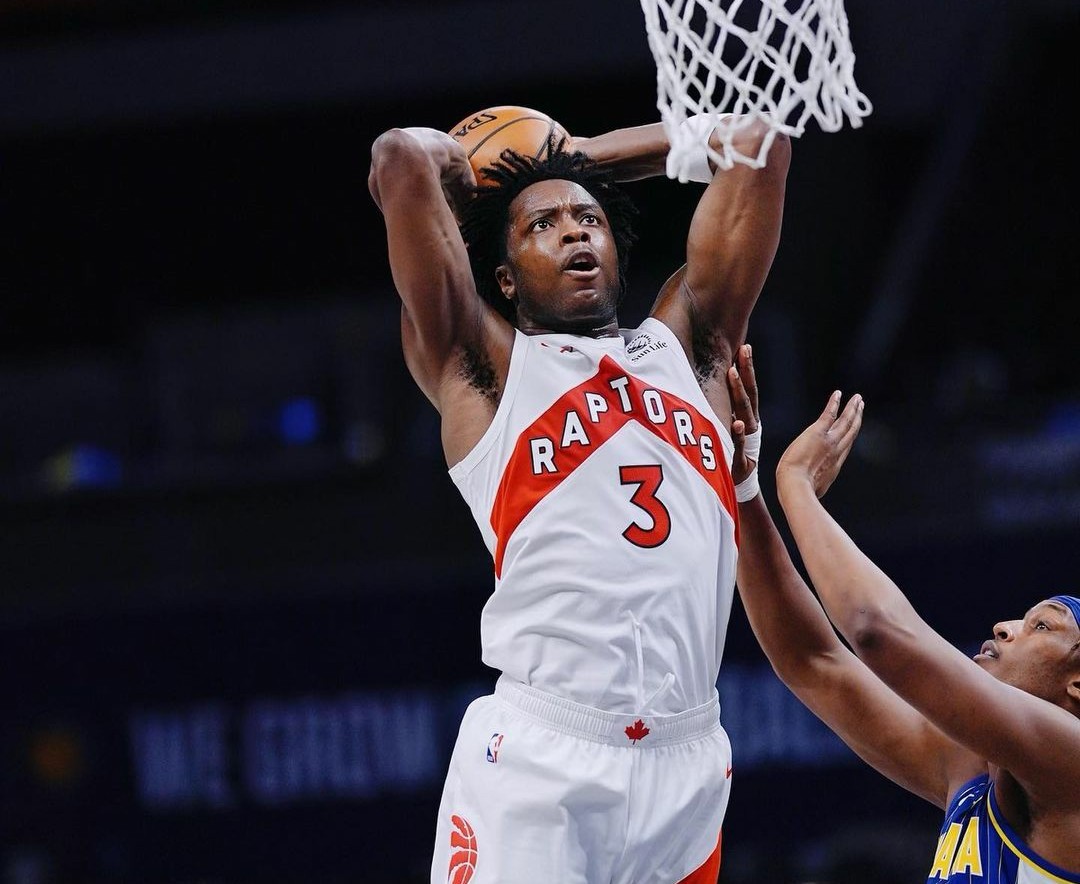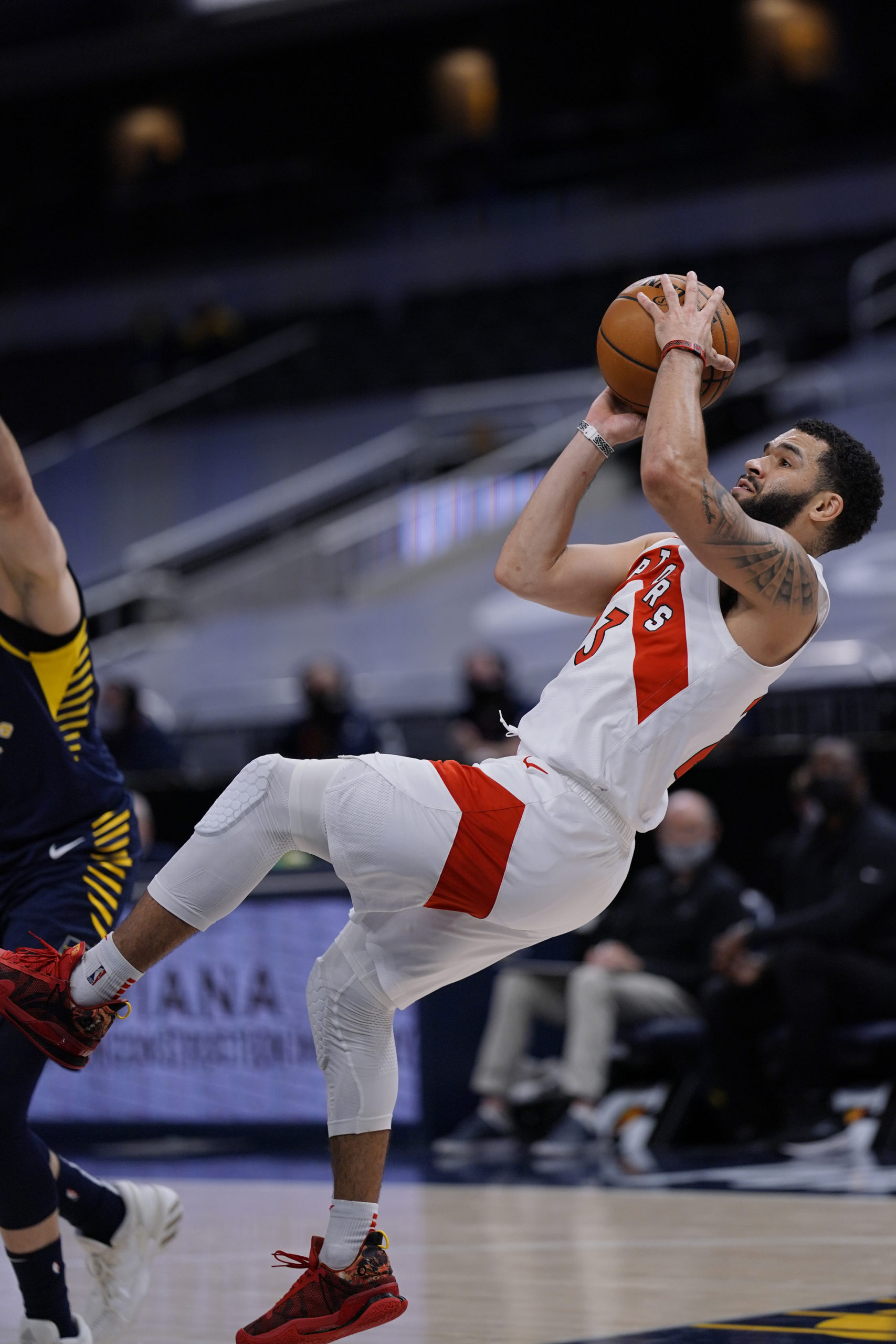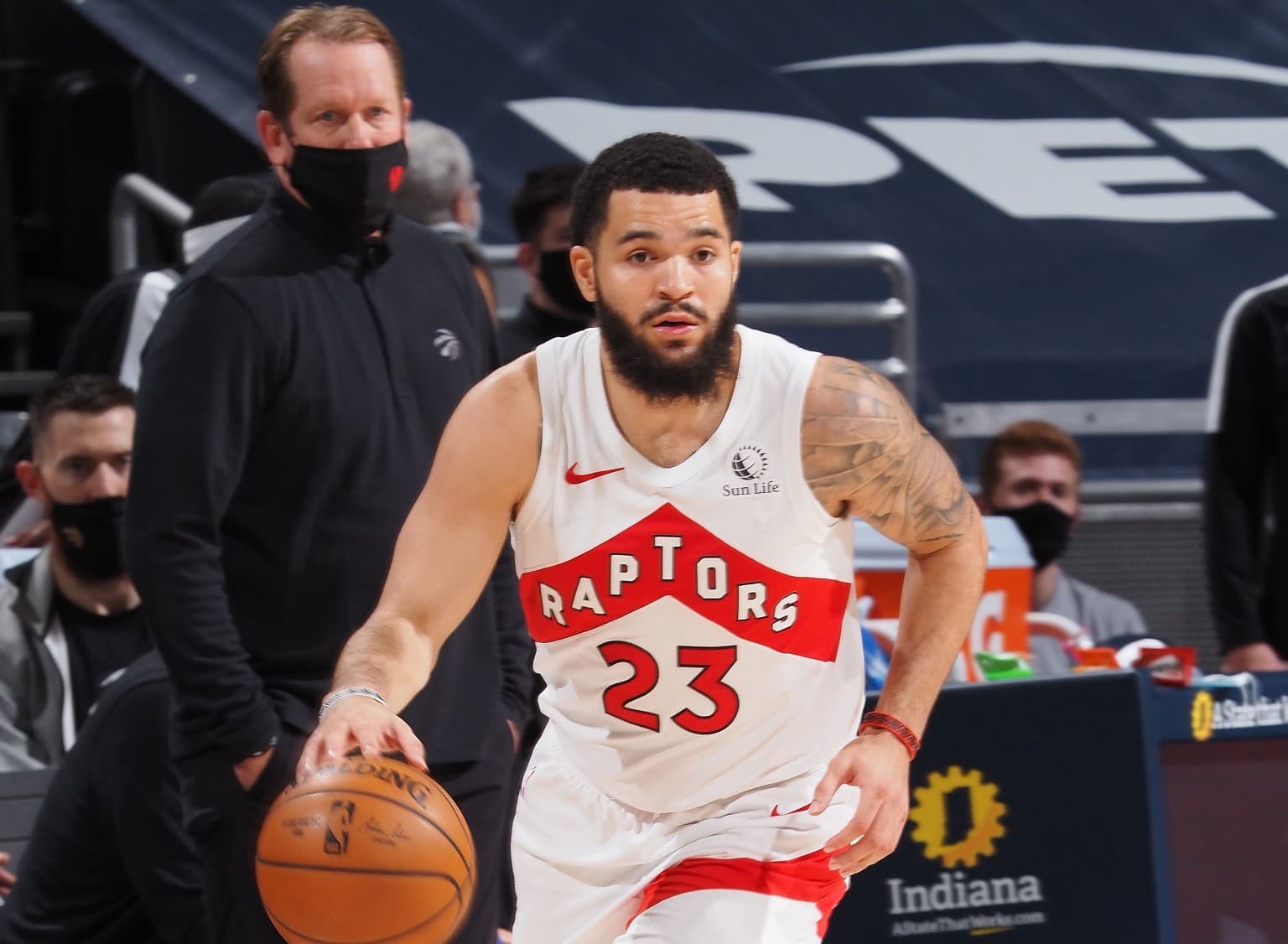If you’re going to break the 7-10 record of the Toronto Raptors into its disparate causes, you might be working hard at the list for a while. You might start by pointing to Toronto’s defensive inattention to detail and inability to defend as a unit. As a result, they were second-best in the league last year and currently sit at a middling 16th. Pascal Siakam’s bemusing up-and-down season might stick out to you. Or you might point to loss of Marc Gasol and Serge Ibaka, combined with the lack of production of Toronto’s two free agent center signings, Aron Baynes, and the now-departed Alex Len. Perhaps you would point to off-court reasons: a lack of desperation, or the emotional toll of moving to Tampa Bay.
Much further down the list, perhaps, would be the role of luck. Maybe you don’t like the word luck. You can use ‘variance,’ or, for real coach speak: ‘uncontrollables.’ But no matter what you call it, rest assured that luck has as much to play in Toronto’s sub-.500 record as many of the above themes.
The Raptors currently sit three games below .500 with a point differential of plus-0.3 that would indicate a team above .500. Assuming a regular 82-game season, the Raptors are on track for an expected 41.8 wins this season, given their point differential; however, their record indicates they’re on track for 33.8 wins. That gap of 8.0 games would be among the largest in history if it held true for a full season.
It must be noted that this season there are currently seven teams with a win differential gap equal to or larger than the Raptors: the Detroit Pistons, Atlanta Hawks, and Washington Wizards, underperforming their expected wins, and the Oklahoma City Thunder, Golden State Warriors, Cleveland Cavaliers, and Philadelphia 76ers overperforming. So the small sample size of teams having only played about a fifth of the season obviously lends itself towards large expected win gaps. Expect most of those to even out by the end of the season.
But that doesn’t discount the poor luck that the Raptors have experienced. Calling it small sample size theater may mean it’s not predictive for future games, but it is certainly descriptive, in that the team has been unlucky to this point.
“You guys, if you’re watching the games, know we’ve played pretty well in a lot of games and were really unfortunate,” said Nick Nurse. “If you’re watching, you know that that’s the case. It shouldn’t have surprised you when you dug those stats up that much, unless you haven’t been watching. Unless you’re a guy that just picks up the paper and looks at the record and say ‘oh man, what are their problems?'”
And Toronto’s poor luck has manifested itself in a variety of ways.
First and foremost, the Raptors have played 38 clutch minutes this season, meaning 38 minutes in the last five minutes of games with a score differential of five or less. Keep in mind, they’ve only played 17 games, meaning approximately half of their last-five minutes have been clutch. And they’ve lost those 38 minutes by an astounding 25 points. (Shouts to the Wizards who have lost 27 clutch minutes by 36 (!) points in only eight games, which, if that rate carried over a full season, would be by a wide margin the worst team-wide per-minute clutch performance of all time, or at least since 1996, when the NBA Advanced Stats database begins.)
Losing clutch minutes can’t exactly be called unlucky, but results do rest on individual data points. So the small sample size theater can be as iffy as your childhood production of Macbeth. Take, for example, Pascal’s two consecutive missed game winners against the Golden State Warriors and Portland Trail Blazers. If he hit those, the Raptors would currently sit at 9-8 and be on track to outperform their expected win total by 0.3 games.
Sometimes season-long narratives can be measured in inches, not months.
“There’s some of that where you look and say a couple bounces here come about there a couple game winners go in and out, you know, we make them and we’re looking at a different record,” said Fred VanVleet. “But we got to give ourselves — we got to make those plays. We’ve got to make those things happen; it’s not going to happen for us.”
To VanVleet’s point, Toronto has actually been fairly unlucky in the clutch beyond those two shots. Opponents have the eighth-highest true shooting percentage against the Raptors in high and very high leverage situations despite taking 19th-highest quality shots. Opponents have the seventh-furthest two-point shot distance in the league in those high-leverage situations, meaning the Raptors have allowed few attempts at the rim and plenty from the mid-range. In other words, Toronto has forced opponents into extremely difficult shots in the clutch, but opponents have made them anyway. Thus the Raptors have been pounded in clutch time despite VanVleet and Kyle Lowry scoring extremely efficiently in such scenarios.
“You can go down a rabbit hole a little bit,” said VanVleet. “So while you’re in competitive mode and get-better mode and being hard on yourself, you say, ‘well…if they made tough shots, we didn’t make them tough enough’ and you try to continue to get better, but sure there’s some of those games that just didn’t go our way and you rack enough of those up…”
And clutch shot-making, which is of course highly variable, is not the only element of luck that has plagued the Raptors. That irritating trend of opponents out-performing their shot quality has actually been a consistent theme outside of clutch time.
Opponent three-point shooting hasn’t been a huge factor if you look at the season overall, but it has impacted some games more than others. Modern research is divided as to the extent to which a defense impacts opponents’ three-point accuracy, and those times when opponents make the hardest shots should always receive pause. When Toronto’s defense forces opponents into contested shots, that has to be considered a process win. When the result doesn’t line up with expectation, that uncontrollable variable functions suspiciously similar to luck.
And in several games this year, Toronto has allowed unseasonably warm shooting nights to opposing teams. In two games against the Raptors, the New Orleans Pelicans combined to shoot 10-of-14 on pull-up triples and 6-of-15 on tightly-contested triples. Eric Bledsoe and Lonzo Ball — who are shooting a combined 34.0 percent from deep on the year — shot 15-of-30 from deep against Toronto. The San Antonio Spurs hit 4-of-6 pull-up triples as DeMar DeRozan hit 3-of-4 from deep alone. Semi Ojeleye, Grant Williams, Terry Rozier, Jae Crowder, and Kendrick Nunn have similarly exploded against Toronto in hitting shots they don’t usually make at such a rate.
Some of that, of course, has been bad three-point defense from Toronto. Their defense on the whole has suffered, especially early in the season, and so they’ve allowed more open triples to opponents as a result. However, even in some when the Raptors have played good defense, opponents have still made shots that they generally missed last season. Outside of garbage time, opponents are shooting 37.8 percent from deep against Toronto, which is the highest rate the Raptors have allowed since 2010-11.
It’s not just shooting. The Raptors have attempted the ninth-fewest free throws in the league, averaging 20.7 attempts per game. And Toronto has allowed opponents to attempt the fourth-most free throws per game, at 25.2. The total deficit of 76 free throws is the second-largest in the league behind only the Phoenix Suns; Toronto has consistently attempted fewer free throws than their opponents. Part of that can be explained by Toronto’s huge number of three-point attempts, and to my eyes the Raptors haven’t been disproportionately disadvantaged by the referees, but Nurse has spent plenty of time after games pointing out the free throw disparity.
There’s plenty the Raptors can point to when casting for blame. Their play, of course, has been less than perfect. But so too have the uncontrollables been less than Toronto might have hoped for. But when I asked VanVleet and Nurse about it, both were very clear that there’s no use crying over lost games, as it were.
“It doesn’t really matter,” said Nurse after acknowledging the team has been unlucky. “What matters is we go play today, we stay in the hunt, we climb into this thing, and we figure out how to get to the postseason, and we improve over the next few months and make ourselves as good a version as we can be ready that time of year.”
“We can’t take those back, it is what it is,” added VanVleet. “But I think that’s why I’m not panicking, certainly not panicking I feel great about this team.”
That’s an important takeaway: bad luck over a small stretch of games is encouraging, not discouraging. It means to some extent that Toronto has a poor record in spite of good play, rather than because of bad play. Luck works counter to the many causes of poor play listed in the beginning of this piece, poor defense, poor center play, inconsistent play from stars. Those elements are descriptive as well, especially in the beginning of the year (which VanVleet emphasized). But as Toronto solves those problems — and they have been doing that before our very eyes — then the Raptors will once again be the dominant Raptors of seasons past. And as the luck has turned, so too have the Raptors started winning again, with the seventh-best net rating in the league over their last 10 games.
The 2020-21 Raptors may have started the year snakebitten, but they’ve since forged ahead and decided to make their own luck.



